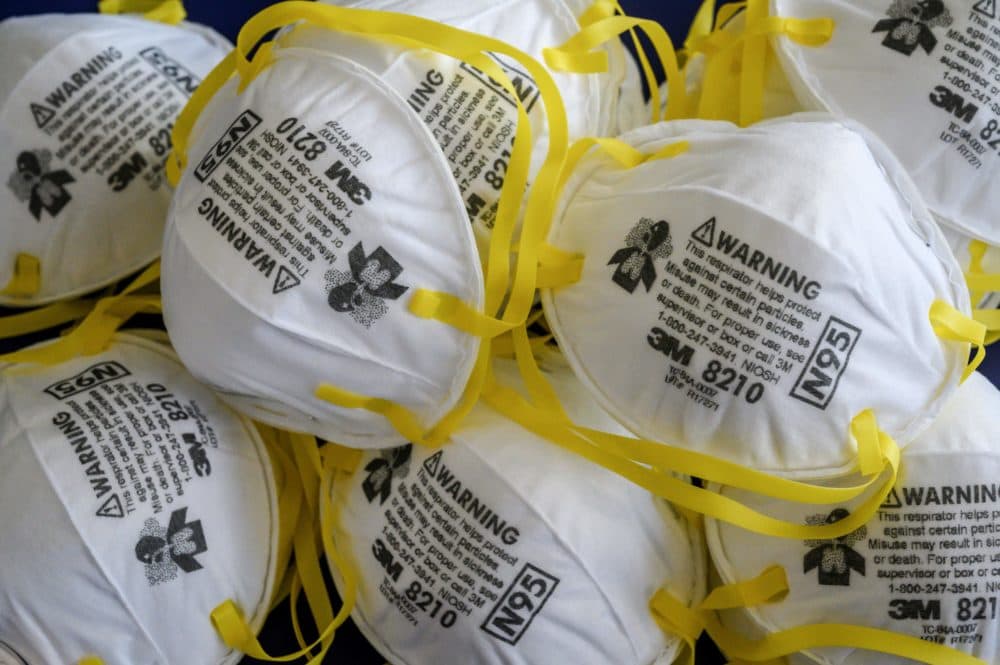Advertisement
Boston Has Its First Confirmed Case Of Coronavirus. Here's What You Should Know

The Massachusetts Department of Public Health confirmed Saturday that a man returning to Boston from Wuhan, China, has a novel coronavirus infection. For the time being, health officials and health experts say Massachusetts residents should not be concerned about the virus.
“Right now, anybody going to a movie theater in Boston has virtually zero chance of coming across someone who has this infection," said Dr. Stanley Perlman, an immunologist and microbiologist at the University of Iowa who has studied coronaviruses. "More likely, it’ll be someone who has the flu."
Health officials said the patient, a young man in his 20s who attends UMass Boston, quickly sought medical attention after returning to the United States. The health department is monitoring the few people he came into contact with for symptoms, and officials say the patient is recovering at home. He does not live in a UMass Boston dorm.
“We are pleased that he is doing well,” Rita Nieves, interim executive director of the Boston Public Health Commission, said in a statement. She suggested that residents continue living their lives as normal.
“Right now, we are not asking Boston residents to do anything differently,” she said. "The risk to the general public remains low."
Here's What To Know
What Is Novel Coronavirus?
The current coronavirus epidemic in China is due to a virus known as 2019 n-CoV. It’s a member of a large group of viruses all known as coronaviruses.
“Until 2003, these pretty much just caused the common cold,” Perlman explained.
In 2003, SARS emerged as a deadly, contagious coronavirus that could cause pneumonia-like symptoms. About 10 years later, another coronavirus called MERS emerged in Saudi Arabia and killed roughly a third of people who became infected.
“SARS and MERS tended to get into the deep lungs and cause pneumonia,” Perlman said. “But it wasn’t nearly as contagious. If you could recognize someone had SARS and pneumonia, you could isolate them really fast. That’s how we got rid of it so easily.”
While a lot is still unknown, this 2019 coronavirus appears to be more easily transmitted than SARS or MERS. On average, experts think each person with the virus could infect between 1.5 and 3.5 people without public health measures. That puts it in roughly the same range as the seasonal flu.
Advertisement
Do I Need To Worry About Getting Novel Coronavirus In Mass.?
Right now, it's important to understand that there is little reason to worry about catching this virus in Massachusetts. So far, there is just one confirmed case in the state and only a handful in the country as a whole. At this point, health officials say the disease is well contained in the U.S.
That doesn’t mean it won’t spread in the future, but health officials are encouraging people not to disrupt their daily lives for now.
Perlman said there's no reason to avoid public places like movie theaters, and health officials are reminding residents that the chances of catching the flu are much higher.
How Does The Virus Spread?
The novel coronavirus is airborne and is likely spread in the same way as the flu — through coughing and sneezing — and direct contact with people with an active infection.
If Coronavirus Cases Rise Here, How Can I Avoid Getting It?
Health experts advise a simple measure with multiple benefits: wash your hands. If you come into contact with the virus — or any other virus such as flu or common cold — hand washing is the best way to keep pathogens from infecting you.
Alcohol-based hand sanitizers may also help, Perlman said, but they may not work as well for viruses as they do for bacteria.
Should I Wear A Surgical Mask?
Surgical masks are probably not very useful, Perlman said, as they don’t create a full seal around your mouth and nose.
There are masks that can help protect you, known as N95 respirators, Perlman said. They do a better job of filtering air, forming a tighter seal around the nose and mouth. But if the masks are not fitted well, Perlman warned they will be less effective.
How Dangerous Is Novel Coronavirus?
Like SARS and MERS, the new coronavirus has the potential to cause pneumonia. Other complications can also occur that can lead to death.
But not for most people. At the moment, the mortality rate seems to be around 2%. As of Monday afternoon, about 350 people have died from the virus out of over 17,000 infections in China.
“We could be underestimating and overestimating the number of deaths, though,” Perlman cautioned. “There may be a huge number of cases we don’t know about -– people who are sick but not diagnosed because they’re just not that sick. Or there might be more deaths with people dying of other causes that we don’t know about.”
It’s unclear who is most at risk, but it's likely that young people are not in as much danger as older adults. Virtually no one under the age of 24 died from SARS, and coronaviruses in general don’t seem to affect young people and children as much as people over the age of 60, Perlman explained.
“But we’ll learn more about what exactly is going on,” Perlman said.
